The Corporate Transparency Act (CTA) is a federal law that requires certain businesses to disclose information about their beneficial owners to the Financial Crimes Enforcement Network (FinCEN). The CTA was enacted in 2021 as part of the National Defense Authorization Act with the purpose of preventing and combatting financial crimes.
The CTA requires certain business entities to file a Beneficial Ownership Information (BOI) report with FinCEN.
Who Is Required to File a BOI Report?
Companies required to report are called reporting companies. Reporting companies are 1) corporations, limited liability companies, and any other entities created by the filing of a document with a secretary of state or any similar office in the United States (called “domestic reporting companies”), or 2) entities (including corporations and limited liability companies) formed under the law of a foreign country that have registered to do business in the United States by the filing of a document with a secretary of state or any similar office (called “foreign reporting companies”).
Exempt Entities
There are 23 types of entities are exempt from the beneficial ownership information reporting requirements, including publicly traded companies meeting specified requirements, many nonprofits, and certain large operating companies. Companies actively held as a 501(C)(4) organization with an IRS exemption are also exempt.
Deadlines For Filing BOI Reports
Any reporting company registered or created prior to January 1, 2024 must file a BOI Report by January 1, 2025.
Reporting companies created or registered on or after January 1, 2024 have 90 days after actual or public notice of creation or registration to file a BOI Report.
Reporting companies that are created after January 1, 2025 will have 30 days after actual or public notice of creation or registration to file a BOI Report.
Beneficial Owners Information
Beneficial ownership information refers to identifying information about the individuals who directly or indirectly own or control a company.
Who Is a Beneficial Owner of a Reporting Company?
A beneficial owner is an individual who either directly or indirectly: (1) exercises substantial control over a reporting company, or (2) owns or controls at least 25 percent of a reporting company’s ownership interests.
An individual can exercise substantial control over a reporting company if the individual 1) is a senior officer, 2) has authority to appoint or remove certain officers or a majority of directors, 3) is an important decision-maker for the reporting company, OR 4) has any other form of substantial control over the reporting company.
Information Requirements of BOI Report
The following information about the reporting company is required 1) legal name, 2) any other identifiers such as “doing business as” or “trading as,” 3) current street address of principal place of business, 4) jurisdiction of formation or registration, and 5) tax payer identification number. The reporting company must also indicate whether this is a new report, a correction, or an update to a previously filed report.
The following information must be provided by the beneficial owners: 1) Individual’s name, 2) date of birth, 3) residential address, and 4) identifying number, such as a license or passport, and the state which issued the identification. Beneficial owners must also provide an image of the identification.
What If My Reporting Company Already Missed the Deadline?
FinCEN understands that this a newer requirement and is working to ensure reporting companies are aware of the law and reporting obligations. If a reporting company corrects a mistake or omission within 90 days of the deadline for the original report, it may avoid being penalized.
Penalties for Failure to Report
Any reporting company and/or beneficial owner who willfully violates this requirement may face civil penalties of fines up to $500 per day that the violation continues and criminal penalties of up to 2 years imprisonment and up to $10,000 in fines. Penalties may be issued for willfully failing to file, filing false information, or failing to correct or update a previously filed report.

